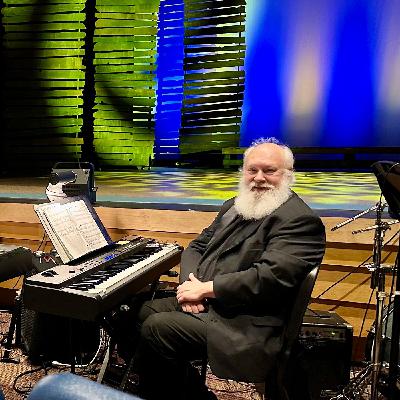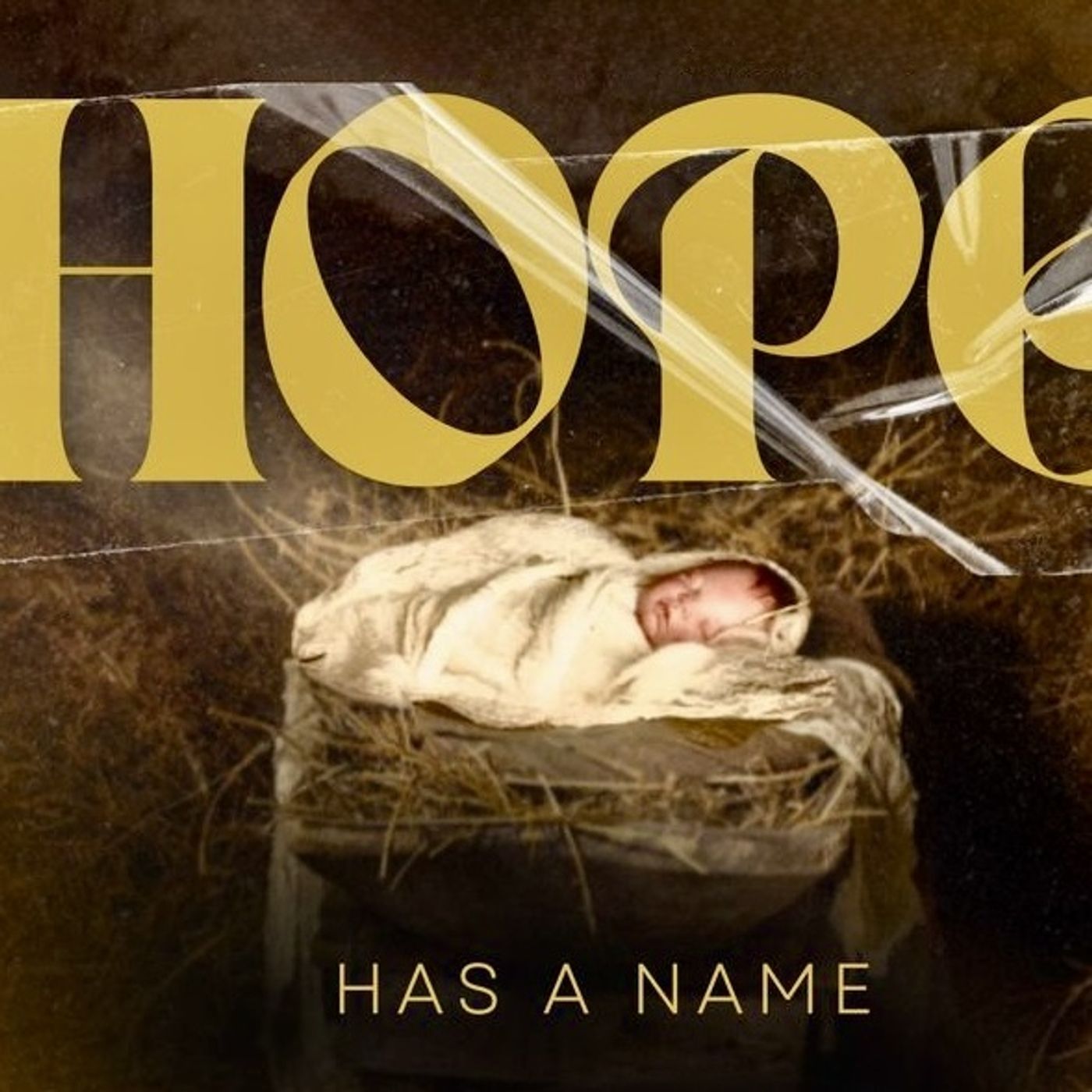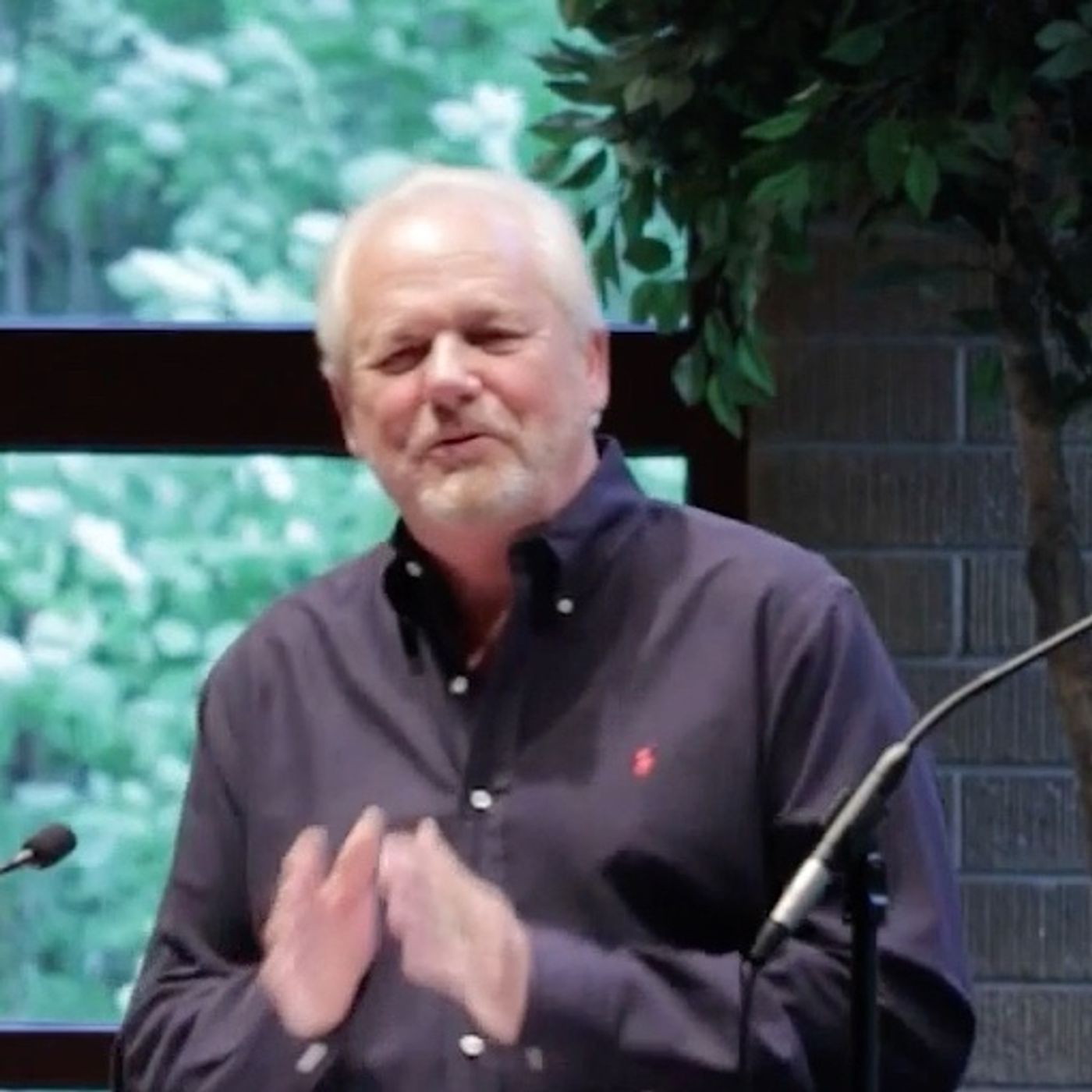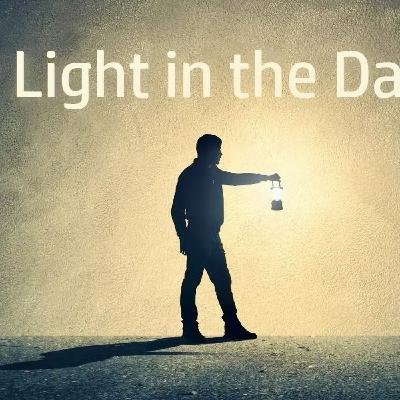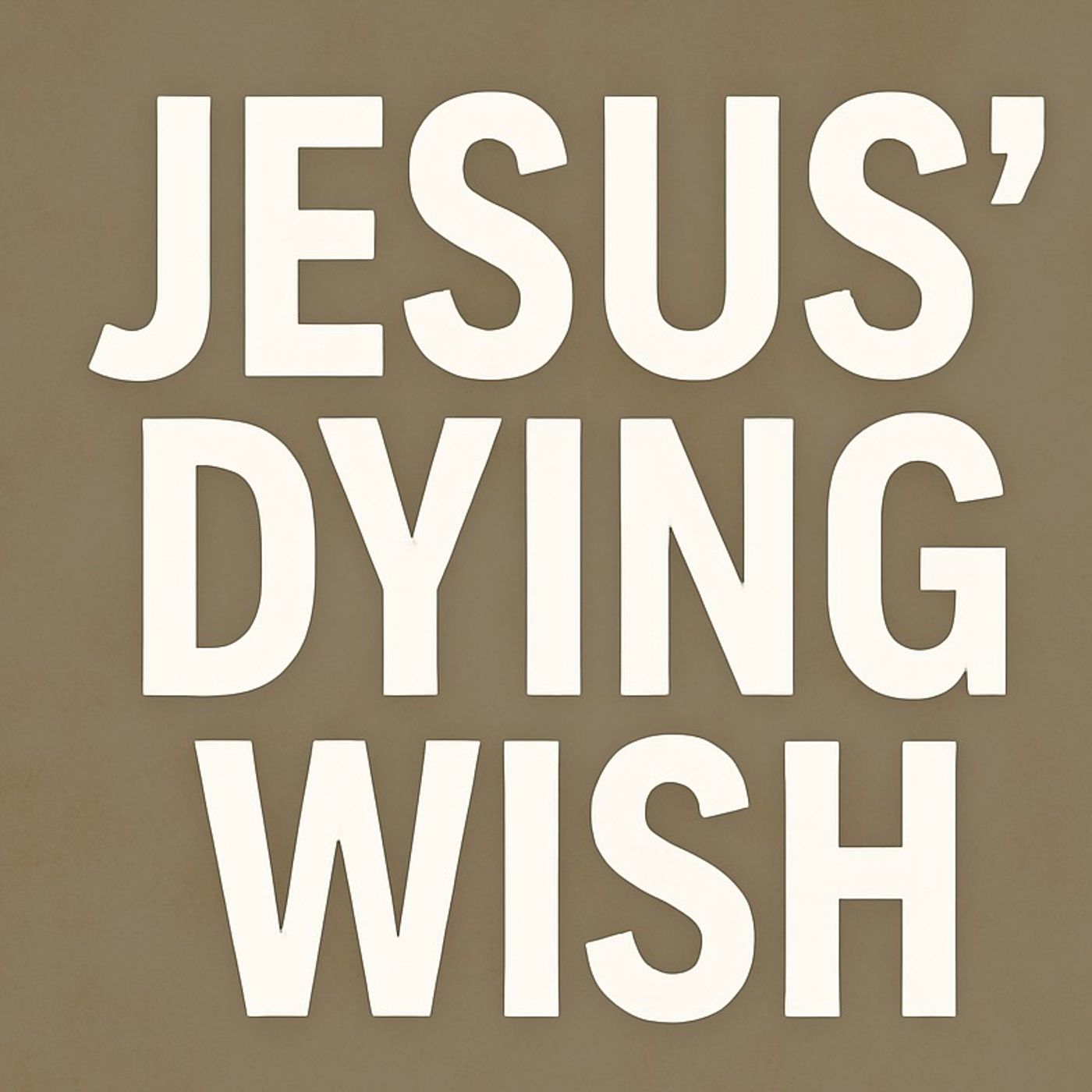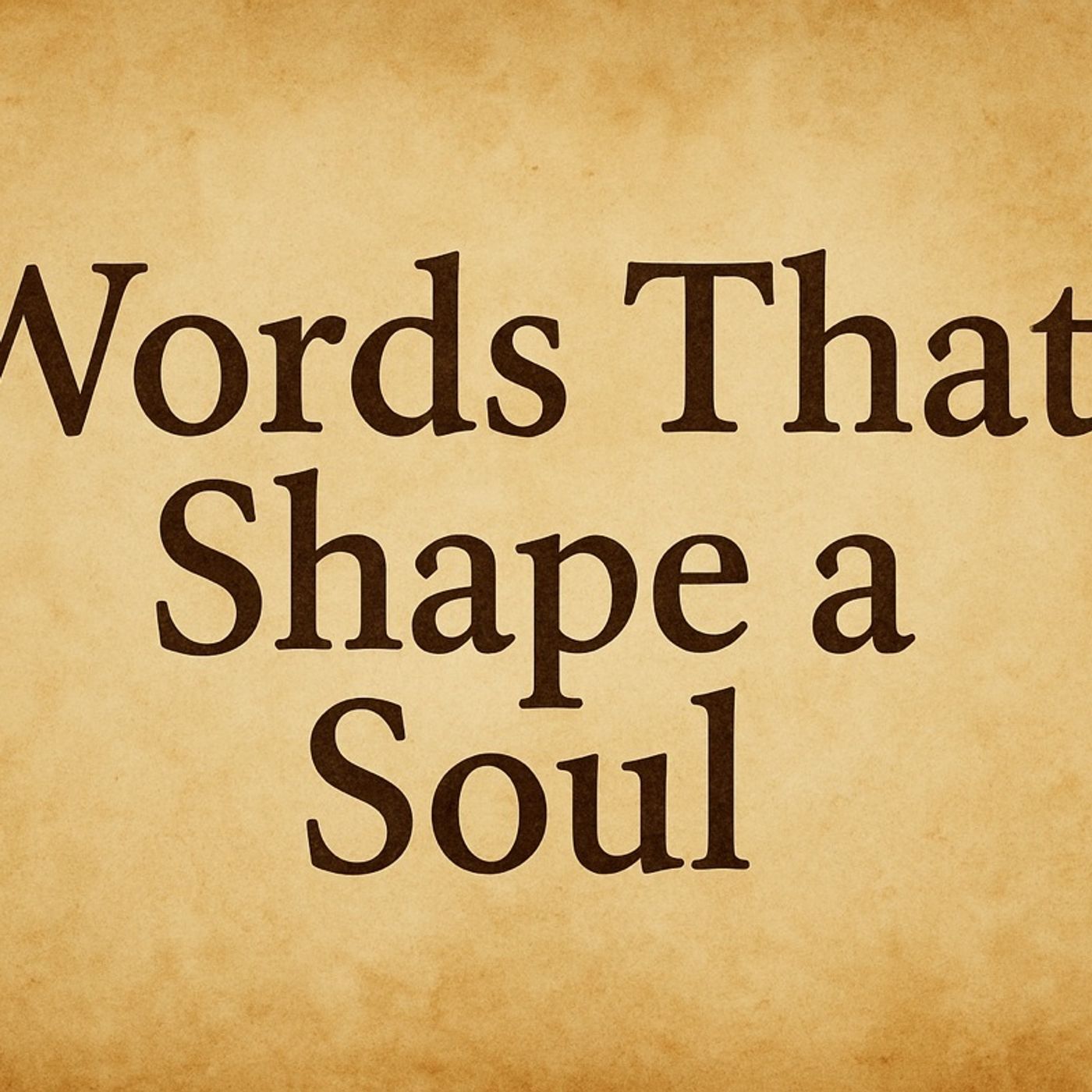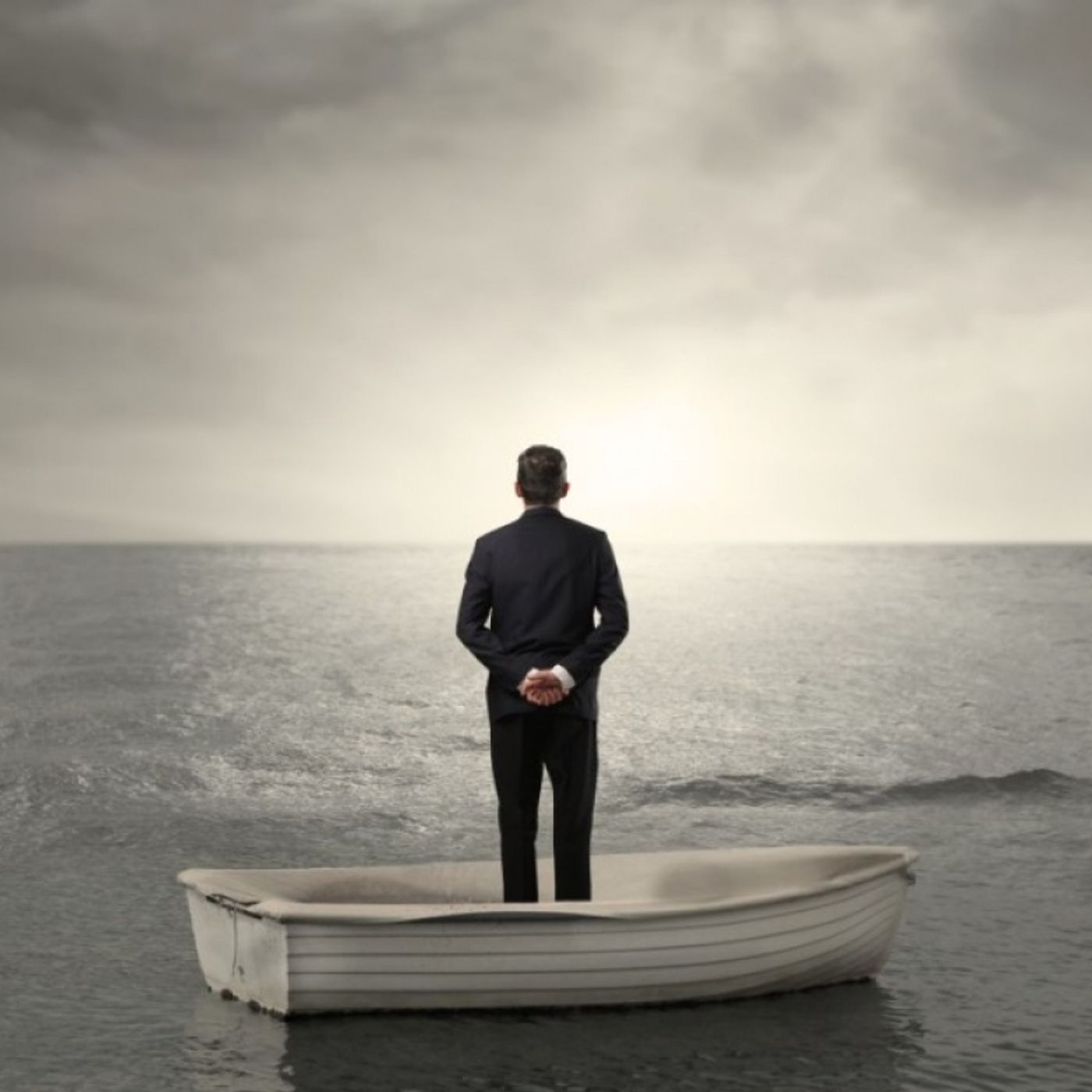Kostia - His Music and Inspirational Life Interview with Pastor Lonnie
Update: 2025-11-10
Description
Konstantin Efimov was born in 1958 in St. Petersburg, Russia, the elder (by 10 years) of two sons born to Igor Efimov, well-established movie actor, and his wife, Irina, whom he met while attending Moscow's prestigious Maly Theater School. Irina performed on stage until a few days before Kostia's birth. "That must be why I enjoy being on stage so much," says Kostia, who goes by his childhood nickname.
His parents chose to live in St. Petersburg to be close to Igor's elderly mother. In 1961, they signed a five-year contract with the Theater Group of the Soviet Army Force, performing in East Berlin. KGB regulations, however, did not allow them to bring Kostia, then age 2-½ with them. He stayed, as an "insurance policy," with his grandmother, Valya, living in a communal apartment that housed nine families (33 people) in 11 rooms, all sharing the same hallway, kitchen and bathroom. "The bathtub was always filled with laundry," Kostia recalls. "We took our baths twice a week in the community bathhouse."
As a child, Kostia displayed a tremendous interest in music, spending much time in front of the radio in his grandmother's tiny room. At age 4, a present was delivered to him from his parents -- a 1937 Wolkenhauer upright piano, upon which he soon learned to play hundreds of Russian folk songs. "It became the center of life in our home," Kostia remembers. "Even my pet rooster, Peter, used the lid as his favorite perch, and he would sit there and listen while I played."
Kostia's parents returned from East Germany in July of 1965, when he was 7. His grandmother died of a stroke the following month.
The same year, Kostia was accepted into a special music preparatory school of the Rimsky-Korsakov Conservatory. For the next 11 years, each day involved four to six hours of piano practice. At the school he met his first great influence, teacher Tamara Karetkina. "I was her first student," Kostia recalls. "She was a tremendous pianist and a beautiful woman, very much resembling Jacqueline Bisset.”
Because of his talent, Kostia and other elite prodigies were forbidden to play sports, for fear of hand injuries. At 14, Kostia, who loved basketball, broke a finger in his right hand during a clandestine pick-up game. "I was so frightened," Kostia says. "The thought of not being able to play again was so horrifying! It was worse than death for me. I didn't tell my mother that I did it playing basketball; I told her I fell down carrying my briefcase." While his right hand healed, Kostia passed the time mastering pieces written by Ravel and Scriabin for left hand. Ravel's piece was composed in honor of a pianist who lost his right hand during World War I.
At 18, Kostia entered the famed St. Petersburg Conservatory. Here he met and studied under Vladimir Nielsen, one of the last great masters of Russian Romanticism. He completed his Conservatory studies in 1982 with advanced graduate degrees in four disciplines: concert (solo) pianist, pianist for chamber ensemble, accompanist, and piano teacher.
Following graduation, Kostia performed throughout Russia, Eastern Europe and Scandinavia as a soloist, with orchestras, with ethnic ensembles and his own jazz-fusion group. Typically, Conservatory graduates move into teaching. "I decided to go another way. I was already involved with jazz and pop performances, and I was pretty well known as an arranger, so I wanted to explore new music. Friends introduced me to Oscar Peterson, and modern jazz and progressive rock bands like Genesis, Yes and King Crimson. It was very different, extremely energetic, and absolutely spontaneous, like myself. I am definitely a free spirit, and playing this music allowed me a certain level of freedom that I wasn't able to explore in classical music."
Kostia received a proposal from the St. Petersburg Cultural Center to start, essentially, an experimental music group. "This was 1982," he says, "and things were warming up a little bit." Kostia called the group “ARS” -- Latin for "art.” While working with ARS, Kostia started composing and arranging music for movies, documentaries and theatrical productions. He freelanced as an arranger, working on a number of soundtracks for the various stage productions. His skills as a performer led him to work with some of the well-established Russian composers (i.e., Alfred Schnitke, Vladislav Uspensky, Vladislav Panchenko), and a number of Soviet pop stars, including Marina Kapuro and Aleksander Rosenbaum, among others.
During a visit to the United States in 1989 with the Soviet-American Cultural Exchange project "Clay Stomp," Kostia had an opportunity to perform for his first American audience at the Milwaukee Art Museum, where he shared the stage with Narada artist David Lanz. That day changed Kostia's life forever. The next morning he received a call from Narada records offering him a recording contract.
From 1989 until 1997, Kostia worked extensively on various Narada projects as a performer, arranger and producer, including David Arkenstone's Grammy-nominated In the Wake of the Wind, and Narada's most celebrated recording, Nutcracker. Kostia's music appeared on more than a dozen of Narada's collections and compilation albums. In 1992, Kostia and David Arkenstone collaborated on the first album ever endorsed by the United States Olympic Committee, Spirit of Olympia. In 1994, Narada released Kostia's first piano solo album Suite St. Petersburg, which he describes as "a piano portrait of my beloved city." 1996 brought another critically acclaimed piano album, Ten Pebbles, where Kostia revisits some of his most cherished memories. Both albums won him respect and recognition of his fellow musicians and the love of fans around the world.
Beginning in 1997, Kostia started a series of recordings with North Sound Music Group dedicated to piano idols of pop music. That year, he released Kostia's Interpretations of Billy Joel followed by Kostia's Interpretations of Elton John in 1998. The success of these projects led to a number of tribute recordings completed with world renowned instrumentalists such as Daryl Stuermer, guitarist from Genesis and Phil Collins Band; Paul McCandless, Windham Hill artist and reed and saxophone player from the band Oregon; and Windham Hill guitarist, Alex De Grassi. In 1999, Kostia composed the soundtrack for the motion picture Czar of Make Believe from Italian director Daniel Alegi, which won an award for Best Short Film at the Rhode Island International Film Festival. In 2001, Kostia released Piano Ocean, an album of original music recorded in collaboration with ex-Narada star Spencer Brewer. At the same time, he composed the soundtracks for a motion picture, The Play in the Modern Style, and a short film of Alex Boguslavsky entitled Blue Lamp.
New Millennium also brought several other exciting projects to Kostia as well – a collaboration between LEGO and George Lucas Film, celebrated short animated film “Star Wars: “Revenge of the Brick.”; new Alex Boguslavsky’s film “My Little Philosopher”; a pilot for an independent motion picture “Slow Poison.”; a collaboration with legendary band Sweetbottom (original Indi fusion group) – “Sweetbottom Live”; several new albums with old band mate, Daryl Stuermer – “GO!”, “Rewired”, “Retrofit”; debut album of Carmen Nickerson “Tomorrow Is Another Day” etc. One of Kostia’s compositions made it to the world renown TV series “Sex and the City.”
In addition to collaborations with well-established music groups and individual artists, Kostia has had his music performed by the Milwaukee Symphony Orchestra, Utah Symphony Orchestra, the internationally famed Veronica String Quartet, and Present Music cellist, Paul Gemainder, to name a few.
Currently, Kostia is at work composing music for his next CD, performing solo piano concerts around the country, and recording and performing with the Daryl Stuermer Band. Future plans? "I am thinking about something I always wanted to do – a series of pieces for chorus, poem for string quartet, and six pictures for piano and orchestra," says Kostia. His journey continues. "Musical Columbus," as he is often called by journalists, is again on the way to discovering new worlds for himself and his fans. Kostia plays regularly at Fox River Congregational Church where he is a composer in residence.
His parents chose to live in St. Petersburg to be close to Igor's elderly mother. In 1961, they signed a five-year contract with the Theater Group of the Soviet Army Force, performing in East Berlin. KGB regulations, however, did not allow them to bring Kostia, then age 2-½ with them. He stayed, as an "insurance policy," with his grandmother, Valya, living in a communal apartment that housed nine families (33 people) in 11 rooms, all sharing the same hallway, kitchen and bathroom. "The bathtub was always filled with laundry," Kostia recalls. "We took our baths twice a week in the community bathhouse."
As a child, Kostia displayed a tremendous interest in music, spending much time in front of the radio in his grandmother's tiny room. At age 4, a present was delivered to him from his parents -- a 1937 Wolkenhauer upright piano, upon which he soon learned to play hundreds of Russian folk songs. "It became the center of life in our home," Kostia remembers. "Even my pet rooster, Peter, used the lid as his favorite perch, and he would sit there and listen while I played."
Kostia's parents returned from East Germany in July of 1965, when he was 7. His grandmother died of a stroke the following month.
The same year, Kostia was accepted into a special music preparatory school of the Rimsky-Korsakov Conservatory. For the next 11 years, each day involved four to six hours of piano practice. At the school he met his first great influence, teacher Tamara Karetkina. "I was her first student," Kostia recalls. "She was a tremendous pianist and a beautiful woman, very much resembling Jacqueline Bisset.”
Because of his talent, Kostia and other elite prodigies were forbidden to play sports, for fear of hand injuries. At 14, Kostia, who loved basketball, broke a finger in his right hand during a clandestine pick-up game. "I was so frightened," Kostia says. "The thought of not being able to play again was so horrifying! It was worse than death for me. I didn't tell my mother that I did it playing basketball; I told her I fell down carrying my briefcase." While his right hand healed, Kostia passed the time mastering pieces written by Ravel and Scriabin for left hand. Ravel's piece was composed in honor of a pianist who lost his right hand during World War I.
At 18, Kostia entered the famed St. Petersburg Conservatory. Here he met and studied under Vladimir Nielsen, one of the last great masters of Russian Romanticism. He completed his Conservatory studies in 1982 with advanced graduate degrees in four disciplines: concert (solo) pianist, pianist for chamber ensemble, accompanist, and piano teacher.
Following graduation, Kostia performed throughout Russia, Eastern Europe and Scandinavia as a soloist, with orchestras, with ethnic ensembles and his own jazz-fusion group. Typically, Conservatory graduates move into teaching. "I decided to go another way. I was already involved with jazz and pop performances, and I was pretty well known as an arranger, so I wanted to explore new music. Friends introduced me to Oscar Peterson, and modern jazz and progressive rock bands like Genesis, Yes and King Crimson. It was very different, extremely energetic, and absolutely spontaneous, like myself. I am definitely a free spirit, and playing this music allowed me a certain level of freedom that I wasn't able to explore in classical music."
Kostia received a proposal from the St. Petersburg Cultural Center to start, essentially, an experimental music group. "This was 1982," he says, "and things were warming up a little bit." Kostia called the group “ARS” -- Latin for "art.” While working with ARS, Kostia started composing and arranging music for movies, documentaries and theatrical productions. He freelanced as an arranger, working on a number of soundtracks for the various stage productions. His skills as a performer led him to work with some of the well-established Russian composers (i.e., Alfred Schnitke, Vladislav Uspensky, Vladislav Panchenko), and a number of Soviet pop stars, including Marina Kapuro and Aleksander Rosenbaum, among others.
During a visit to the United States in 1989 with the Soviet-American Cultural Exchange project "Clay Stomp," Kostia had an opportunity to perform for his first American audience at the Milwaukee Art Museum, where he shared the stage with Narada artist David Lanz. That day changed Kostia's life forever. The next morning he received a call from Narada records offering him a recording contract.
From 1989 until 1997, Kostia worked extensively on various Narada projects as a performer, arranger and producer, including David Arkenstone's Grammy-nominated In the Wake of the Wind, and Narada's most celebrated recording, Nutcracker. Kostia's music appeared on more than a dozen of Narada's collections and compilation albums. In 1992, Kostia and David Arkenstone collaborated on the first album ever endorsed by the United States Olympic Committee, Spirit of Olympia. In 1994, Narada released Kostia's first piano solo album Suite St. Petersburg, which he describes as "a piano portrait of my beloved city." 1996 brought another critically acclaimed piano album, Ten Pebbles, where Kostia revisits some of his most cherished memories. Both albums won him respect and recognition of his fellow musicians and the love of fans around the world.
Beginning in 1997, Kostia started a series of recordings with North Sound Music Group dedicated to piano idols of pop music. That year, he released Kostia's Interpretations of Billy Joel followed by Kostia's Interpretations of Elton John in 1998. The success of these projects led to a number of tribute recordings completed with world renowned instrumentalists such as Daryl Stuermer, guitarist from Genesis and Phil Collins Band; Paul McCandless, Windham Hill artist and reed and saxophone player from the band Oregon; and Windham Hill guitarist, Alex De Grassi. In 1999, Kostia composed the soundtrack for the motion picture Czar of Make Believe from Italian director Daniel Alegi, which won an award for Best Short Film at the Rhode Island International Film Festival. In 2001, Kostia released Piano Ocean, an album of original music recorded in collaboration with ex-Narada star Spencer Brewer. At the same time, he composed the soundtracks for a motion picture, The Play in the Modern Style, and a short film of Alex Boguslavsky entitled Blue Lamp.
New Millennium also brought several other exciting projects to Kostia as well – a collaboration between LEGO and George Lucas Film, celebrated short animated film “Star Wars: “Revenge of the Brick.”; new Alex Boguslavsky’s film “My Little Philosopher”; a pilot for an independent motion picture “Slow Poison.”; a collaboration with legendary band Sweetbottom (original Indi fusion group) – “Sweetbottom Live”; several new albums with old band mate, Daryl Stuermer – “GO!”, “Rewired”, “Retrofit”; debut album of Carmen Nickerson “Tomorrow Is Another Day” etc. One of Kostia’s compositions made it to the world renown TV series “Sex and the City.”
In addition to collaborations with well-established music groups and individual artists, Kostia has had his music performed by the Milwaukee Symphony Orchestra, Utah Symphony Orchestra, the internationally famed Veronica String Quartet, and Present Music cellist, Paul Gemainder, to name a few.
Currently, Kostia is at work composing music for his next CD, performing solo piano concerts around the country, and recording and performing with the Daryl Stuermer Band. Future plans? "I am thinking about something I always wanted to do – a series of pieces for chorus, poem for string quartet, and six pictures for piano and orchestra," says Kostia. His journey continues. "Musical Columbus," as he is often called by journalists, is again on the way to discovering new worlds for himself and his fans. Kostia plays regularly at Fox River Congregational Church where he is a composer in residence.
Comments
In Channel

